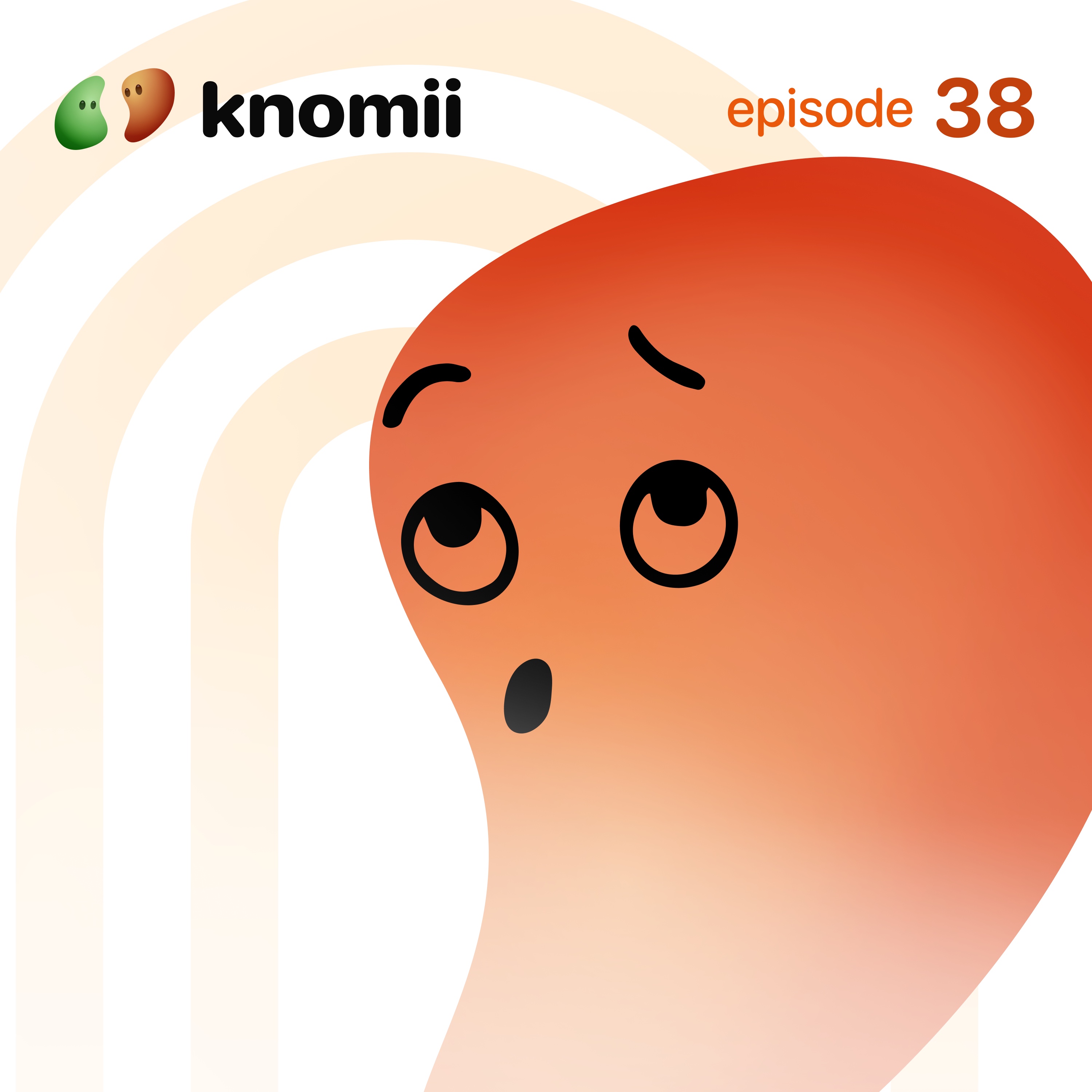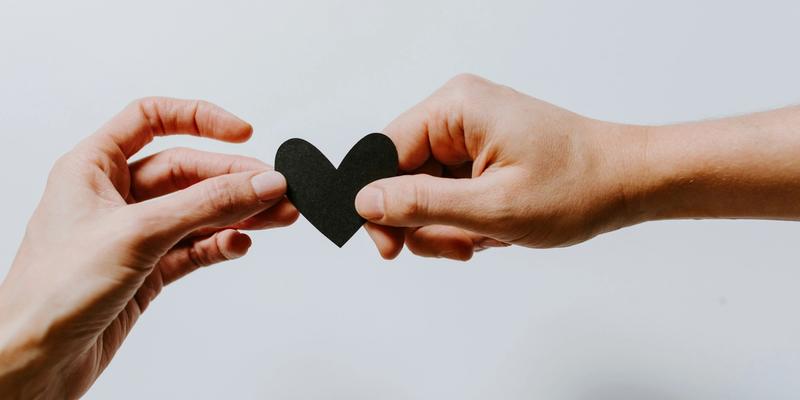
The Art of Relationship Building: How to Forge Strong Friendships and Partnerships in Life

The quality of our relationships, whether they are friendships or romantic partnerships, plays a significant role in our happiness, growth, and overall well-being. But what does it take to build and maintain these vital connections, and what do we do when they are no longer serving us?
How to Build Quality Relationships
Building quality relationships takes more than just stumbling upon the right people; it actually starts with us! Self-awareness is the bedrock upon which genuine connections flourish. Imagine planting a garden. You wouldn't simply scatter seeds and hope for the best, would you? You might take time to research the soil, understand the needs of each plant, and act accordingly. Similarly, building quality relationships requires a little curiosity and self-discovery.
In our podcast episode, we took a deep dive into the challenges and triumphs we’ve experienced in our hunts for quality connections.
Listen here:

Having Self-Awareness is Key to Satisfying Relationships
- Get Clear On Your Values: What truly matters to you? By understanding your core values, you’ll be more likely to foster connections that resonate deeply.
- Understand Your Needs: What brings you happiness? Do you prefer cozy 1-on-1 time or shared adventures? Recognizing your emotional needs is crucial in identifying relationships that nourish you.
- Recognize Your Boundaries: What are your limits? What behaviors are acceptable, and which are not? Boundaries help deter toxicity, meaning your relationships can start off on a healthy footing.
- Embrace Authenticity: Who are you, truly? When we are courageous and show up as our true selves, we build relationships rooted in honesty and vulnerability.
What are the Key Elements of a Quality Relationship?
Building quality relationships isn't about finding a pre-made masterpiece; it's about crafting a unique connection based on your own needs and desires. While there's no one-size-fits-all recipe, some key ingredients can add universal flavor:
- Trust: Feeling safe and comfortable sharing your true self is essential for any strong bond.
- Respect: Valuing each other's individuality and boundaries fosters understanding and appreciation.
- Communication: Open and honest dialogue, where both parties listen and express themselves, keeps the connection strong.
But remember, the magic lies in your personal choices! Self-awareness will help you find the "secret ingredients."
Reflective Writing:
Think about friendships and romantic partnerships. What are the top three values you believe are essential for your relationships to thrive?
Reflect on a moment when you felt truly yourself with someone else. What made you feel safe and comfortable being that open?
Is it Normal to Outgrow Friendships?
Have you ever found yourself drifting apart from a friend or partner? You're not alone! Just like a river changing its course, sometimes it's time for a friendship or partnership to morph. Although this can be an uncomfortable experience, it is a sign of personal growth. It is important to lean into honesty and self-compassion during these times.
How Personal Growth Impacts Relationships
As we learn more about ourselves and the world, our brains don’t stay the same; they are actually developing, and with that comes changes in our thoughts, feelings, and goals. This means the person you shared your lunch with in grade school might have a totally different vibe now. It isn’t a bad thing, just different, and sometimes it can feel like trying to keep two puzzle pieces fitting together when both pieces are changing shape.
Reflective Exercise: Navigating the Evolution of Relationships
- Look at Your Relationships: List the relationships you feel you’ve outgrown. For each, describe the core reasons you believe led to this drift.
- Identify Feelings: Reflect on how this realization makes you feel. Are you sad, relieved, nostalgic, indifferent?
- Personal Development: List the ways you have grown and changed since the start of these relationships.
- Looking Forward: How could allowing these relationships to take different growth paths enrich your life in the long run?
How Do I Let Go of My Old Friends?
Remember, you're not alone in this journey! Given that our time and energy are finite resources, there may come a moment when you need to reassess where you're directing your efforts. It might feel tough at first, but remember, this is all part of the personal growth journey.
When it's time to shift your focus, deciding whether to have a conversation depends on the situation. Often, you can allow the relationship to flow into its new state naturally by focusing your energy on activities or other relationships that are more in line with who you want to be. If it does necessitate a conversation, then having a clear understanding of the whole scope of your relationship and why it is time to change can be invaluable.
Tool: Reflective List
- Write down what you valued in the friendship, what you've learned, and how you've grown.
- Consider what you need now in your relationships and how you can move forward positively.
- Write a gratitude note highlighting the positive aspects and lessons learned. This exercise can help in letting go with appreciation and grace.
What is the Difference Between Transactional and Transformational Relationships?
As you're evaluating your current relationships and seeking new ones, understanding the difference between transactional and transformational relationships is pivotal. You can use this knowledge as a compass, guiding you in the direction of relationships that align with your deepest values and aspirations. Here are some hallmarks of each type.
How Can You Tell if a Relationship is Transactional?
- It's All About What You Get and Give: You mostly talk or meet up when you need something from each other. It's like a barter system – "I'll do this for you if you do that for me."
- Surface-level Chats: Your conversations don't really go beyond the "Hey, can you do me a favor?" or discussing whatever you're exchanging. It's like sticking to the shallow end of the pool.
- Here Today, Gone Tomorrow: You're pretty much focused on what's happening right now, like getting help with a project or sharing notes, without much thought for the future.
- Hot and Cold Interest: How much you want to hang out seems to change depending on what's up for grabs. If there's nothing to exchange, the enthusiasm cools off pretty quickly.
How Can You Tell if a Relationship is Transformational?
- Grows With You: These relationships evolve as you do, adapting and deepening over time. It's like having a friend who's in it for the long haul, through thick and thin.
- Real Talk: Conversations dive deep. You can chat about dreams, fears, and everything in between, feeling heard and supported every step of the way.
- Future-Focused: There’s an underlying excitement about what’s ahead. Planning future adventures or imagining where you’ll both be years down the line is part of the fun.
- Reliable Support: Whether you’re up or down, there’s a genuine eagerness to be there for each other, without expecting anything in return except friendship.
Reflective Writing:
- When I think about my current relationships, which ones feel more like a barter system, where we're primarily exchanging favors or support, and how do those relationships make me feel?
- Which of my relationships allow for deep, meaningful conversations and mutual growth? How do these relationships contribute to my personal development?
- How do I see myself in the context of my relationships? Do I feel like I'm constantly in a transaction mode, offering support with the expectation of something in return, or do I engage more openly, offering support and sharing vulnerabilities without expecting anything back?
How to Make Friends as An Adult
Making new friends as an adult feels like learning a new language, exciting but potentially intimidating. It often requires us to move beyond our comfort zones. One of the best ways to meet new people in a meaningful way is to explore activities and spaces that resonate with our values. For example, joining a community gardening project can connect you with individuals who share a passion for sustainability and the outdoors. If you value learning, you could participate in a book club or take a class. By engaging in activities that reflect our interests and values, we open the door to forming new friendships that enrich our lives and support our personal growth.
Tool: Values and Activity List
- Identify Your Values: Reflect on what is most important to you in life. Examples include honesty, community, creativity, sustainability, and learning. Next, narrow your list down to 5-6 values.
- Brainstorm Activities: For each value, brainstorm activities, hobbies, or groups that resonate with that value. Aim for at least 2-3 activities for each.
Conclusion: The Journey Towards Meaningful Connections
Building, maintaining, and sometimes letting go of relationships are pivotal moments that define our path to personal fulfillment and happiness. Self-awareness, open communication, and mutual respect as cornerstones of lasting bonds. Whether it's through deepening existing connections, transitioning from those that no longer align with our growth, or forging new friendships, each step is moves us toward meaningful relationships. As we continue on this path, let us remember that the true value lies not only in the joy and support these connections bring but also in how they shape us into more empathetic, understanding, and connected humans!